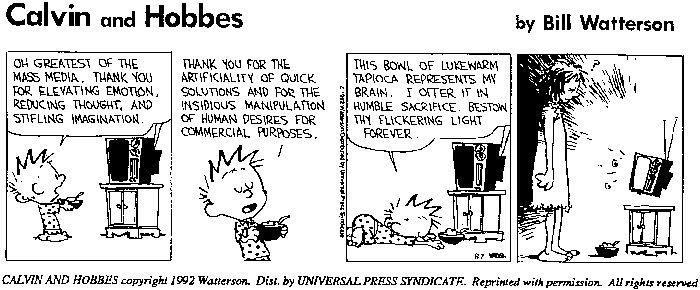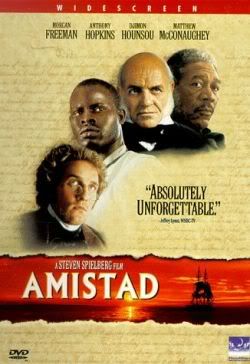I'm often tempted to describe my political views as humanist. This is because for me humanism is all-encompassing. I don't restrict myself to the modern definition, which tends to be defined by what it isn't, but rather embrace the whole of humanity's spirit: literature, politics, philosophy, and everything else in the library. Although there are humanist parties in place (associated with the "Humanist International"), I don't know too much about them and according to Wikipedia -- whose veracity is unquestionable, you know -- other humanist groups view them with a great deal of suspicion. This is not a matter I have looked into for myself because it is a moot subject: there is no Humanist Party in the United States that I know of. If there was, though, what would be be constituted of?
I sometimes identify my politics with the Universal Declaration of Human Rights to make it clear I am human-rights centered. I am a humanist: my concerns start with humanity first, not in endorsing political ideologies. It seems to me that many political groups care only for abstracts -- The Nation, for instance, or The Economy. These things only matter to the point that they help us. I care little for free markets or planned economies by themselves: I want to know what state people can be their best in. I have a few opinions on that subject, but I don't know if this is the place for them. I think human rights is a good starting point for political humanism. I think human rights must be universal, with no distinctions made to seperate those who do not share political viewpoints. To deny human rights to prisoners, even terrorists, is to deny our own humanity. I don't think we can keep someone's face in the dirt without getting down there themselves, in other words. We can't call ourselves humanists and forgoe human rights.
Branching off from a commitment to human rights is the necessity for democracy: among the rights we cherish is the right of every person to think, believe, and act for himself -- to be in control of his or her own destiny.
Branching off from a commitment to human rights is the necessity for democracy: among the rights we cherish is the right of every person to think, believe, and act for himself -- to be in control of his or her own destiny.
Although human rights is a starting point, crucial to modern humanism is the spirit of rationality. Reason must inform our politics -- not vain trust in ideology. It is one thing to explore the consequences of free-market options versus planned options, for instance: it is another to believe that The Free Market is god and that only in it can people be happy. The same goes for planned economies: although they sound splendid on paper, societies are difficult things to plan. I mention these not because of the current political debate, but because this is something I think about a lot: I have a zealous distrust of corporate power and a healthy respect for the corrupting influence that power has on the people who think they hold it, but I also can't underestimate the tendecy for bureacracies to get bogged down or for the system to simply not work because we will never have access to all the information that we need to plan things properly.
I don't need to praise Reason to humanists, but I so very rarely hear it praised in political matters. Instead, we hear a lot about belief and values. I don't condemn these things, but we must temper them with reason. We cannot blindly trust in something because it makes us feel good, or because if everyone trusted in it everyone would be happy. Unthinking praise for beliefs and values is the road to nationalism, for beliefs and values are always personal. Reason is impersonal: we humans may think differently about many things, but we know something is reasonable when we hear it. Our brains understand the language of logic, even if they make mistakes in the translation. Reason cannot be a passive thing: we must interrogate ideas, make them prove their worth.
You might wonder why I have not yet mentioned church-state seperation, as it seems to be the easiest thing for humanists to rally around. I think this misses the point: we plant the flag and bare our teeth when a religious group attempts to enforce its own values on the rest of us, but try to do the same about corporations influecing the government through campaign contributions and you'll be called a socialist. There is no difference between an oil company and a religious "company" influencing politics or culture: a minority is attempting to rule the majority, or more plainly one group is attempting to dominate or unduly influence another.
Although these are a couple of starting points, there's much room for individual interpretations. Because of my commitment to human rights, for instance, I am a firm believer in universal healthcare. For me, healthcare is too important to not be available to all who need it: it is a moral imperative. I do not want it to be subject to the whims of profit and greed: the starting point for planning the policy must be to meet needs, not to generate profit. Democracy is also not a simple issue: while some believe in representation, others value more direct forms of democracy.
What are your thoughts on how humanism can be expressed politically?
Although these are a couple of starting points, there's much room for individual interpretations. Because of my commitment to human rights, for instance, I am a firm believer in universal healthcare. For me, healthcare is too important to not be available to all who need it: it is a moral imperative. I do not want it to be subject to the whims of profit and greed: the starting point for planning the policy must be to meet needs, not to generate profit. Democracy is also not a simple issue: while some believe in representation, others value more direct forms of democracy.
What are your thoughts on how humanism can be expressed politically?








